 Petzlover
Petzlover Posavac Hound is originated from Croatia but Scottish Terrier is originated from United Kingdom. Posavac Hound may grow 33 cm / 13 inches higher than Scottish Terrier. Posavac Hound may weigh 10 kg / 23 pounds more than Scottish Terrier. Both Posavac Hound and Scottish Terrier has almost same life span. Both Posavac Hound and Scottish Terrier has same litter size. Posavac Hound requires Low Maintenance. But Scottish Terrier requires Moderate Maintenance
Posavac Hound is originated from Croatia but Scottish Terrier is originated from United Kingdom. Posavac Hound may grow 33 cm / 13 inches higher than Scottish Terrier. Posavac Hound may weigh 10 kg / 23 pounds more than Scottish Terrier. Both Posavac Hound and Scottish Terrier has almost same life span. Both Posavac Hound and Scottish Terrier has same litter size. Posavac Hound requires Low Maintenance. But Scottish Terrier requires Moderate Maintenance
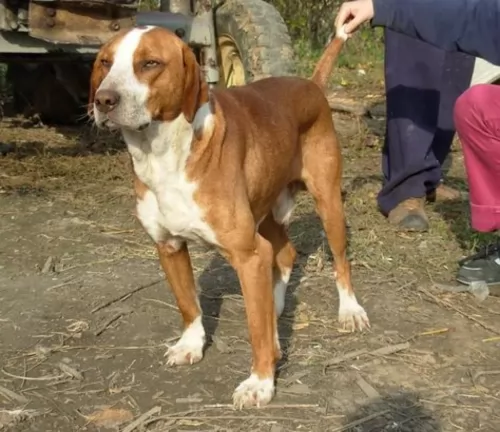 The Posavac Hound originates from Croatia and is believed to have descended from the Molossian.
The Posavac Hound originates from Croatia and is believed to have descended from the Molossian.
The name Posavac Houndare or Posavac Hound was a name bandied about and the name was officially recognized in 1969 by the Federation Cynologique Internationale.
The dog was categorized as a Scent hound. The breed is unrecognised by any of the UK or US Kennel Clubs.
 The Scottish Terrier is also known as the Aberdeen Terrier but people who love and know him refer to him fondly as the Scottie.
The Scottish Terrier is also known as the Aberdeen Terrier but people who love and know him refer to him fondly as the Scottie.
These little dogs were originally bred to hunt vermin on farms and their actual origin is ancient. It is believed that the first descriptions of these dogs date way back to 1436 with there being 2 varieties - a rough-haired Scotch Terrier and a smooth-haired English Terrier.
In 1881 the Scottish Terrier Club of England was founded with the Scottish Terrier Club of Scotland being founded in 1888. Scotties were introduced to America in the early 1890s.
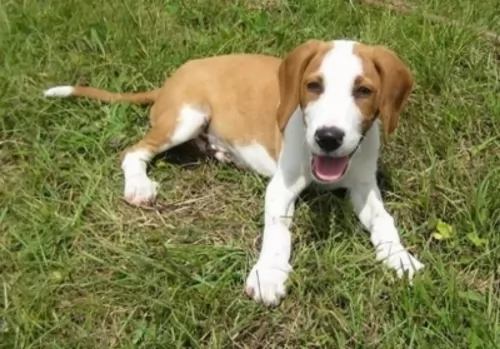 Although the Posavac Hound is a rare dog breed, people who have owned the dog say it should be far better known as it is a gem of a dog.
Although the Posavac Hound is a rare dog breed, people who have owned the dog say it should be far better known as it is a gem of a dog.
The Possie as he is fondly referred to as, is a solidly built dog resembling the Beagle. He stands at between 43 - 59 cm and weighs 16 - 20 kg.
He has long, floppy ears and a kind, gentle expression on his face. The coat is short and smooth, being slightly longer on the stomach and around the back of the legs. The coat color is a wheaten, cream shade. He has bright brown eyes and a long tail, often with a white tip.
The Posavac may look gentle, but in character he is happy and enthusiastic. He makes the most wonderfully faithful, loving dog. He likes to be busy too, game for all kinds of activities but he is intelligent as well. He responds well to training and socialization.
People who have owned this dog say he has a truly amazing temperament, being eager to please his human owner. You’ll find him getting along well with children and other pets in the home.
 The Scottish Terrier is a small dog, fairly robustly built but with short legs. He has a wiry, weather-resistant coat and a soft undercoat. The coat is essentially black but there are other colors too such as a wheaten shade, grey-black and brindle too.
The Scottish Terrier is a small dog, fairly robustly built but with short legs. He has a wiry, weather-resistant coat and a soft undercoat. The coat is essentially black but there are other colors too such as a wheaten shade, grey-black and brindle too.
The ears are erect, the eyes small and bright. The tail isn’t docked but is of medium length and is nearly always held up, without curling over the back.
Height at withers for both males and females should be roughly 23 to 26cm and weight in the region of 8 – 10 kg.
The Scottie is a an independent, robust breed. He is playful as a puppy, but as he matures he becomes more dignified and dour. He is stubborn, but being a terrier he is alert and makes a good watchdog. For a small dog he has a powerful bark.
Brave, loving and loyal, he can fit into life in the city or the countryside so long has he has his human family close by. He doesn’t take kindly to strangers and he he slightly aggressive with other dogs he doesn’t know. He makes a great playmate for children but he certainly doesn’t like being prodded, sat on and poked by small children.
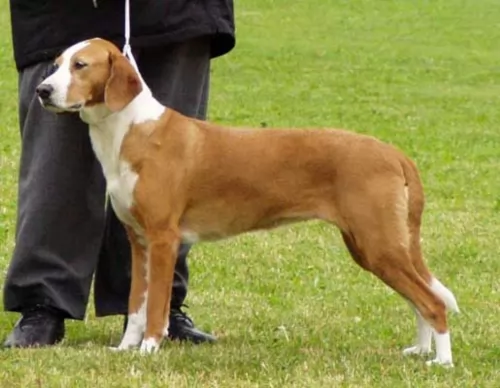 People who have kept the Posavac as a pet say he has wonderful features which make him a sought after canine friend.
People who have kept the Posavac as a pet say he has wonderful features which make him a sought after canine friend.
He has always been a working dog and he is confident and assured, independent, social and friendly. He makes a great friend of children and gets on well with other pets in the house.
He thrives on activities and doesn't want to be left to just lie around ignored. He becomes frustrated and destructive. It wont be the dogs fault but the owners. If you're looking for a lively, friendly, loving dog, you’ll find the Posavac a great addition to your home.
 The Scottie is strong willed and independent, and training and socialization is important if you don’t want your Scottie believing he has the final say.
The Scottie is strong willed and independent, and training and socialization is important if you don’t want your Scottie believing he has the final say.
These dogs are stubborn and dominant and will need a strong, firm but kind owner. They’re aggressive with other dogs, but get on well with their human family.
When you bring one of these distinctive looking dogs into your home, he’ll be a loving, loyal friend.
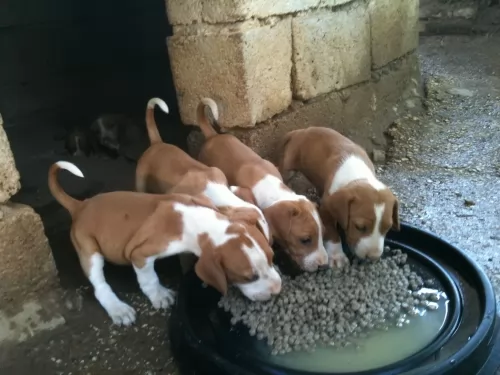 You won’t find many health disorders linked to this lovely dog. He can reach 11 – 14 years of age fairly easily if well taken care of. Of course, his floppy ears pose a bit of a problem.
You won’t find many health disorders linked to this lovely dog. He can reach 11 – 14 years of age fairly easily if well taken care of. Of course, his floppy ears pose a bit of a problem.
It is quite difficult to keep the inside of the ears dry and clean, and this means dirt, wax and moisture can cause bacteria and ear infections.
Because he is also a deep chested dog, he can be prone to bloat. Bloat is when gas collects in the stomach and it twists. You will notice your pet’s abdomen swollen and hard. He will require immediate veterinary attention.
 Your Scottie is looked upon as being a generally healthy dog breed, but as with any other healthy dogs, he can succumb to some of the conditions and diseases that dogs get -
Your Scottie is looked upon as being a generally healthy dog breed, but as with any other healthy dogs, he can succumb to some of the conditions and diseases that dogs get -
This is an inherited blood disorder where the blood doesn’t clot properly. The dog will bleed excessively after an injury. Fortunately, while there isn’t a cure, dogs can lead normal lives.
Scottish Terriers are more prone to developing cancer than other dogs. Bladder cancer, lymphosarcoma and malignant melanoma are just some of the cancers they can get. Some cancers are treatable and there is a good success rate in dogs receiving chemotherapy.
When you brush your Scottie, look out for new, unusual lumps that could be indicative of cancer.
Scotty Cramp isn’t serious but uncomfortable for your pet. When your dog becomes worked up, you’ll see him arching his spine and he walks around for a few minutes with a stiff unnatural gait.
Obesity is regarded as a serious disease as it puts strain on the dogs joints and also creates back pain and digestive disorders.
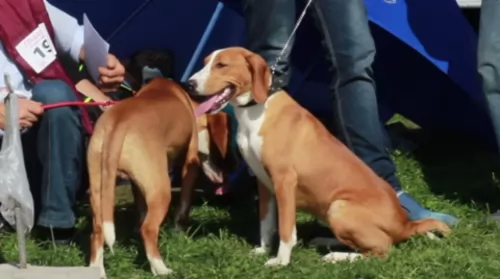 Your Posavac Hound is going to need lots of exercise. He’s used to being a working dog and being kept busy. A good walk will delight him, but it won’t be enough. If you go cycling or riding on a horse, you can count him in to run alongside you. He will also plunge into the swimming pool with you.
Your Posavac Hound is going to need lots of exercise. He’s used to being a working dog and being kept busy. A good walk will delight him, but it won’t be enough. If you go cycling or riding on a horse, you can count him in to run alongside you. He will also plunge into the swimming pool with you.
While he can adapt to life in the city, he is essentially a country living dog, loving to get outside and be active.
Because of the short, smooth coat, and being an average shedder, the Posavac will only require a brush twice a week, so he is fairly low maintenance in terms of grooming.
Check for signs of an ear infection – redness inside the ear and your pet scratching at his ear can be signs,
Trim his nails.
Check inside his mouth for teeth problems. Bad teeth can create a host of problems.
Provide your dog with an excellent diet. It needs to be nutritious food if you’re going with a commercially manufactured dog food. High quality dry kibble can be excellet for your pet, but break the monotony by mixing in some home made food occasionally. Boiled chicken, brown rice or pasta, swee pototatoes, carrots and spinach, al chopped up and mixed in twice week with the drykibble can be awaited twice a week with yur pet. Raw meat added in sometimes can also contibute to your pets health. Feeding a dog doesnt have to be complicated. Dos thrive on consistency and simplicity and this diet will have him healthy ad hapy Make sure he always has a bowl of fresh, cool water available to him.
 Scotties were once bred as working dogs, and they will certainly require daily exercise and stimulation. He will love a walk but you can’t expect him to run with you as he has short legs.
Scotties were once bred as working dogs, and they will certainly require daily exercise and stimulation. He will love a walk but you can’t expect him to run with you as he has short legs.
The Scottie sheds, so he will need to be brushed at least twice weekly. He will require quite a bit of grooming in terms of having the coat professionally trimmed and clipped.
His eyes and ears will need to be checked as well as his teeth. He can’t tell you if he has terrible toothache and while brushing him, check the teeth. Trim his nails too.
It is always recommended that you feed dogs according to size, age and activity levels. Dogs are individuals and they don’t all need the same food.
The quality of the dog food you provide makes a huge difference on your dog’s health. It always pays to go with the better quality kibble available to dogs. Your Scottish Terrier will be depending on your for quality kibble with the right blend of vitamins and minerals.
Dogs thrive on simplicity and consistency and you want to provide him with some home-made food too that gels well with his digestive system. A little bit of raw meat occasionally can also do him the world of good.
Make sure he always has cool, fresh water to drink.